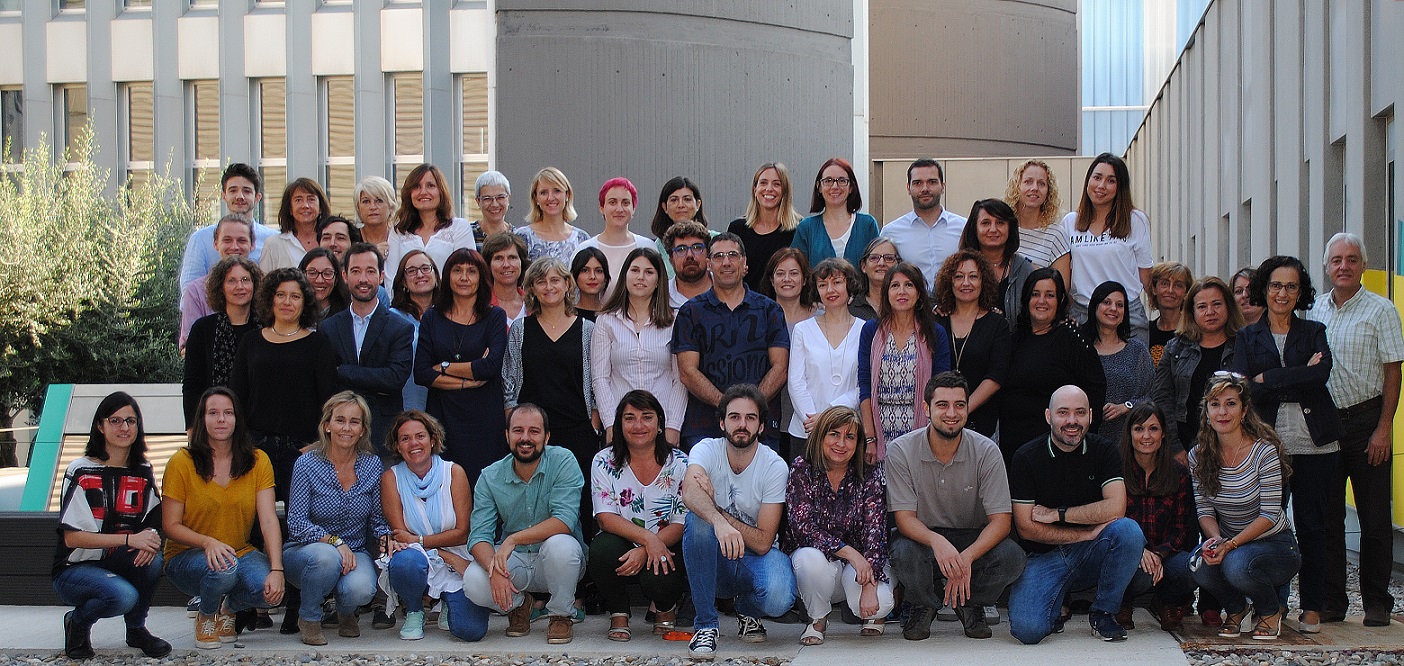
The Bosch i Gimpera Foundation celebrates 35 years as the UB’s technology transfer office
For thirty-five years, the Bosch i Gimpera Foundation (FBG) has been connecting the University and the business world with the aim of transferring the results of the research carried out at the University of Barcelona to society. The FBG was created in 1983 precisely as an instrument that was to help establish a relationship between the University and society, and since 1996 it has acted as the Office for the Transfer of Innovation Results (OTRI). In that first year 1983, the FBG managed 10 innovation projects for an amount of € 480,000. By the end of 2017, the Foundation had managed 810 projects worth € 29.4 million. Currently, the FBG has 124 patents to transfer, and it has licensed a total of 46 technologies during the period 2015-2017.
“In these 35 years of history we have played a key role in promoting the collaboration between the University and society. Not only do we talk about innovation, but we also apply it to our own activity in order to increase the positive impact of research and to be able to continue being a key actor for the development of the third mission of the University of Barcelona in the coming 35 years,” says M. Carme Verdaguer, Director General of FBG, when asked about the future of the Foundation.
Over the course of these years, the work of the FBG has enabled a large number of projects arising from the research conducted at the University of Barcelona to have an impact on society. For instance, Coolinside, a scalpel developed as a result of the collaboration between the UB, the University of Zaragoza, and the company Apeiron Medical that drastically reduces blood loss during liver cancer operations, is already used in over thirty hospitals. Likewise, the ANTIOX research group, from the Faculty of Biology, has provided the company Biovert consultancy services for the development of a new product that causes flower buds to break dormancy in a uniform way, which in turn yields a crop as uniform and productive as possible.
The first priority of the FBG has always been to promote innovation, and this objective can also be achieved through the creation of spin-offs. Since 2000, nearly forty innovative companies have emerged from UB projects, eleven of which have been set up in the last four years, a growing trend in the field of technology transfer within research centres.
In 2016, the FBG launched Science + Partners, an event that brings together people from the business world, investors, and UB researchers with projects in the transfer phase. This meeting, already consolidated, has celebrated its fourth edition, and has already produced a succes story: the collaboration between the investment fund BeAble Capital and a project of the Faculty of Physics of the UB that ended with the creation of the spin-off Enlighting Technologies. Also since 2016, the FBG has distributed € 279,000 through its own Fund for the Promotion of Innovation (F2i), which opened its third call last September.
At present, the FBG has a staff of 49 people, 77% of whom are women and 23% men. The average seniority of the staff within the Foundation is twelve years, which has allowed the establishment of a family atmosphere both among the staff and in the relationship with researchers. Dr. Albert Cirera, who is currently the UB vice rector for Entrepreneurship, Transfer, and Innovation, explains his personal experience as a researcher working with the FBG in the following terms: “Over the last twenty years I have had the pleasure of collaborating with many people from the Bosch i Gimpera Foundation. Administrative tasks that are often incomprehensibly complex are resolved efficiently —and with a smile— within the FBG. For me, the commitment and adaptability of its staff are the two greatest values of this institution, which has allowed address with confidence aspects as diverse as the establishment of new agreements with companies, the creation of a spin-off, hiring staff, and applying for international projects. Now, as vice rector of Entrepreneurship, Transference, and Innovation, I appreciate their value even more, and therefore my personal commitment is to contribute to making the FBG a useful and valid institution for the next 35 years, all the while trusting in its main asset: its people”.

